The Team
Research Scientists
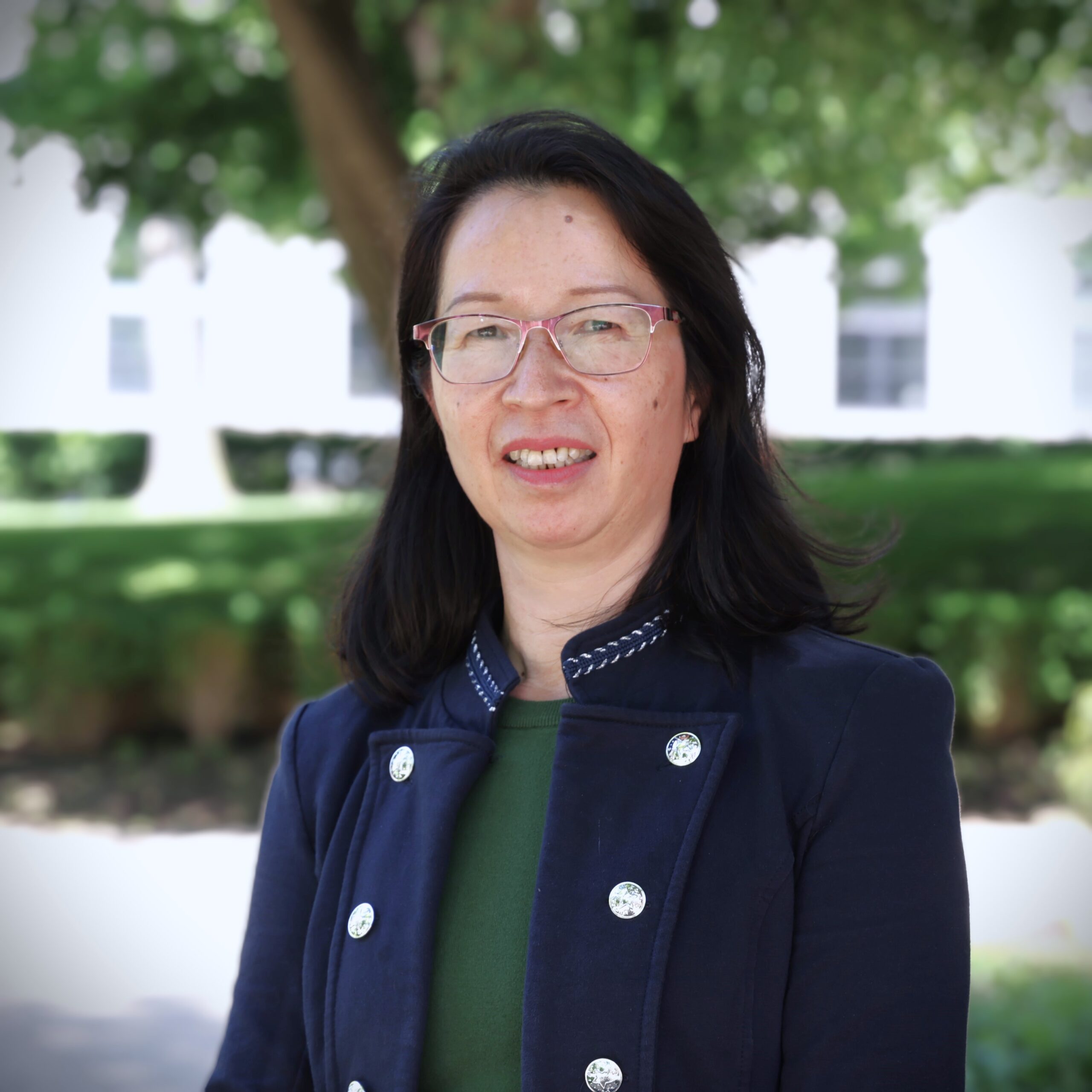
Research Scientist and Laboratory Manager
Xuemei Zeng, Ph.D., is a Protein Biochemist specializing in proteomics, molecular and cellular biology, epidemiology, and bioinformatics. She holds a Ph.D. in Molecular, Cellular, and Developmental Biology and an MPH in Epidemiology, both from the University of Pittsburgh. Dr. Zeng’s research focuses on leveraging mass spectrometry for both unbiased and targeted biomarker exploration in neurodegenerative diseases. As the manager of the Karikari lab, Dr. Zeng oversees the operational and personnel management of the laboratory, as well as providing support in grant application processes. Outside the lab, Dr. Zeng enjoys the rhythms of Zumba, the tranquility of nature trails, and the satisfaction of cultivating her own vegetables.

Research Scientist
Anuradha Sehrawat, Ph.D. a molecular biologist with advanced degrees in Toxicological Sciences from Jamia Hamdard University, India. Dr. Sehrawat’s research expertise spans cellular and molecular biology, biochemistry, and toxicology, with a focus on gene therapy for a range of diseases; including diabetes (types 1 and 2), pancreatitis, and cancer. Presently, Dr. Sehrawat’s research is dedicated to developing new innovative bioanalytical methods for blood biomarkers in clinical settings. These methods aim to facilitate the early detection and diagnosis of Alzheimer’s disease, as well as identifying early pathological changes in the brain that may allow for preventive interventions. In her free time, Anu finds joy in practicing yoga, meditating, and reading.

Postdoctoral Fellow
Wasiu Balogun graduated from Universiti Sains Malaysia with a PhD in Molecular Pathology. In his research, he focuses on the development and application of neuroinflammatory biomarkers in biological fluids, with the goal of using these biomarkers for the diagnosis and prognosis of Alzheimers disease and related dementias. He is experienced in molecular biology, biochemical assays, and neuroscience. In his leisure time, he loves to play with his kids and read about politics of the world.
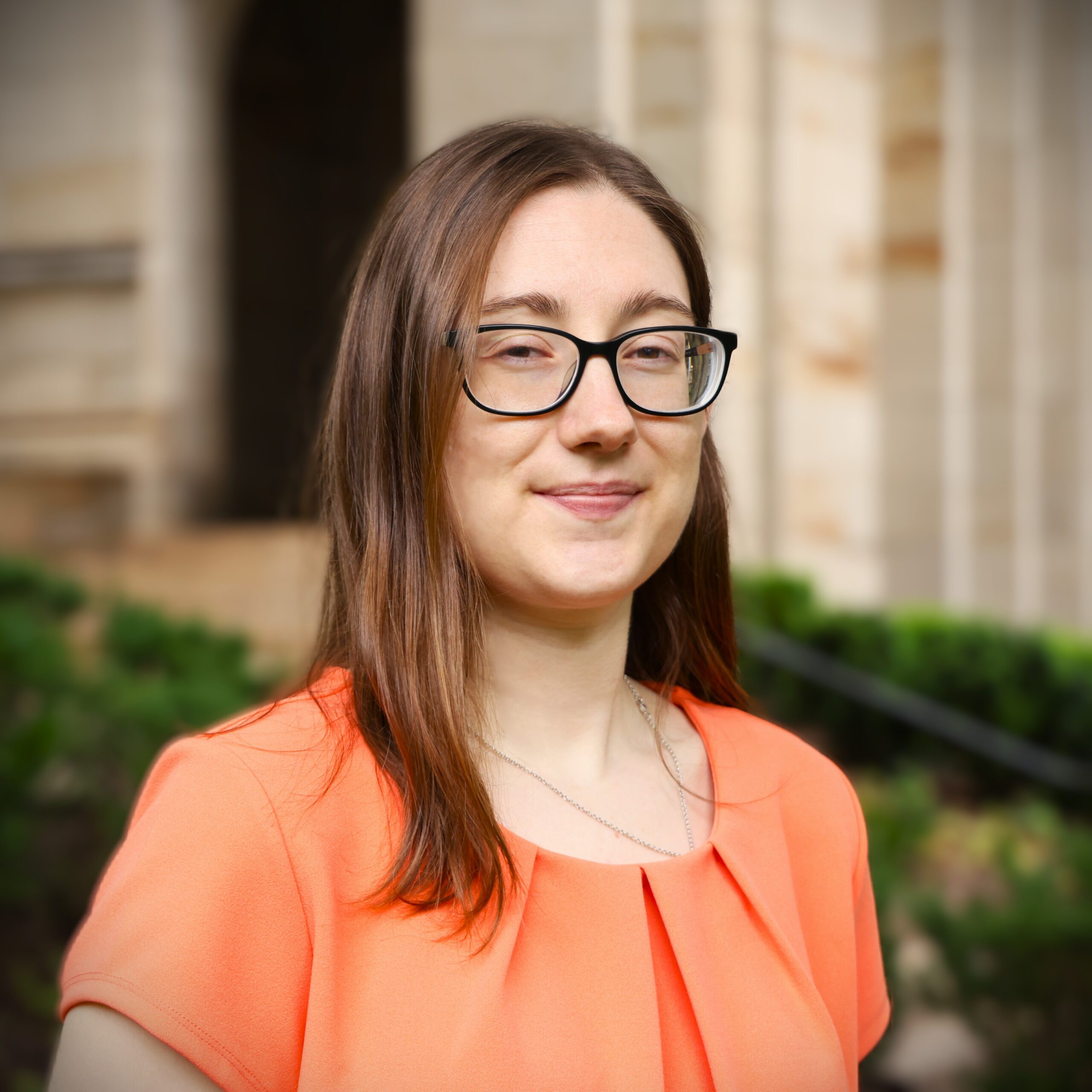
Postdoctoral Fellow
Alexandra Izydorczak earned her PhD in Chemistry, specializing in Analytical Chemistry, from the State University of New York at Buffalo. Her research centered on employing mass spectrometry to analyze bioanalytical specimens, including opioids, peptides, and metabolites extracted from tissue biopsies. Utilizing both targeted and untargeted analytical approaches, she aimed to quantify and identify potential biomarkers. Her passion for discovering biomarkers for Alzheimer’s disease was a significant factor in her choice to join the lab. In her free time, Alex enjoys practicing yoga, exploring culinary creations, and diving into a good book.

Postdoctoral Fellow
Dr. Lee holds a Ph.D. in Senior Healthcare from Eulji University, South Korea, and is trained in biomedical laboratory science, holding a license as a medical technologist. Her research has primarily focused on identifying biomarkers for diagnosing age-related diseases and estimating the age of bloodstains. With extensive experience in proteomics and metabolomics, Dr. Lee has specialized in analyzing human blood-derived samples using mass spectrometry. Currently, her research interests include developing analytical methods for proteomic and metabolomic biomarkers in dried plasma spots, as well as exploring the role of these biomarkers in metabolic changes associated with neurodegenerative diseases. Her goal is to translate these findings into impactful clinical applications. Outside of her research, Dr. Lee enjoys baking, crocheting, video gaming, and traveling. She is also passionate about desserts, coffee, tea, and all things cute!
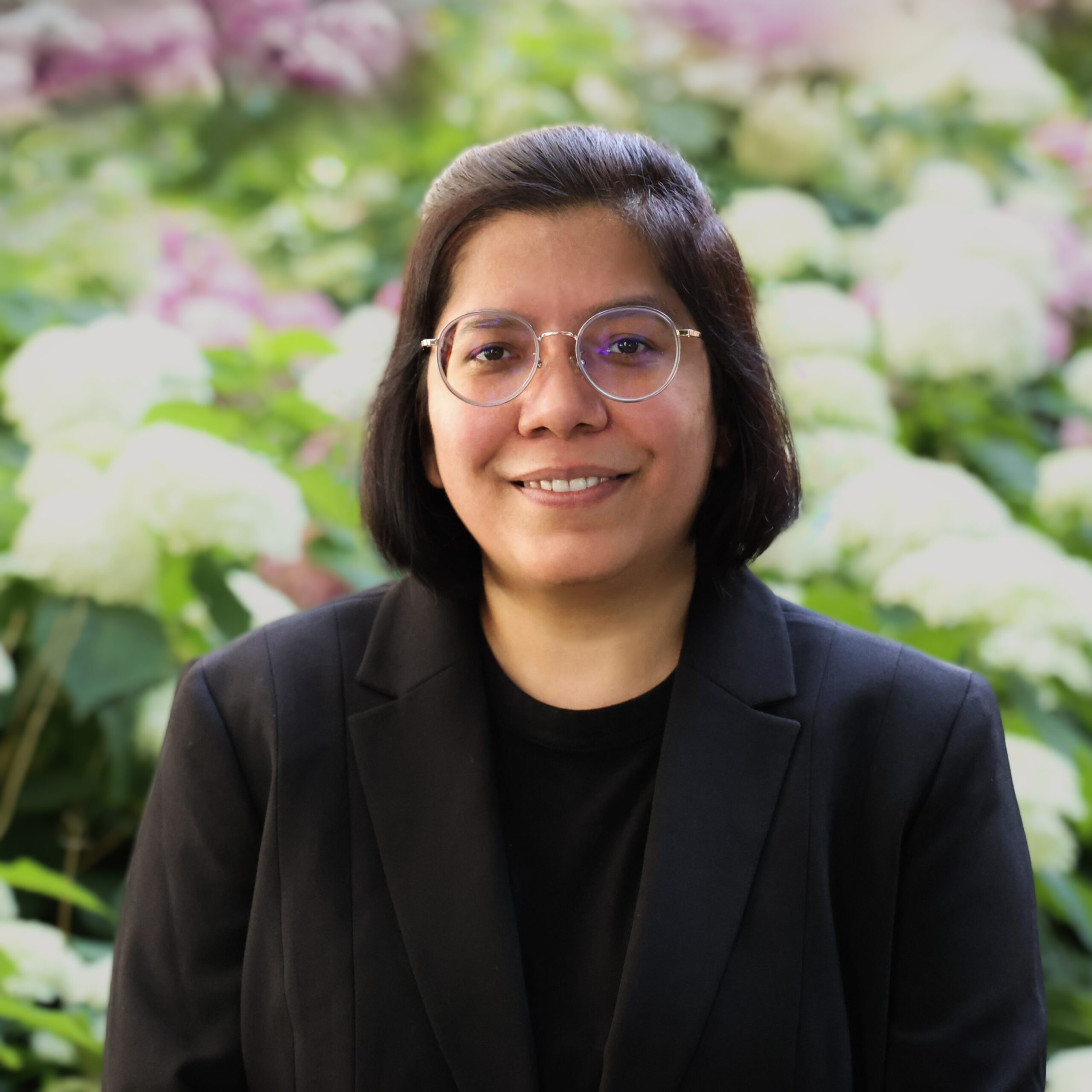
Postdoctoral Fellow
Monika earned her Ph.D. in Medical Biotechnology from Taipei Medical University, Taiwan, and a Master’s degree in Pharmaceutical Chemistry with a specialization in Analytical Chemistry from Jamia Hamdard, India. Her research focused on identifying post-translational modifications and differentially expressed proteins in clinical samples from Alzheimer’s disease (AD) using LC-MS/MS. Her previous work explored the effects of aldehyde adducts on amyloid-beta production, modification, and autoimmunity in AD. She has expertise in sample preparation using immunoprecipitation for LC-MS, as well as in method development and optimization for proteomics analysis and data analysis using bioinformatics tools. Her passion for innovation, combined with her experience in both research and regulatory fields, drives her commitment to developing blood-based biomarkers for the early diagnosis of AD for clinical applications. Outside of work, Monika enjoys eco-humanitarian volunteering, trekking, cycling, meditation, yoga, traveling, and cooking.
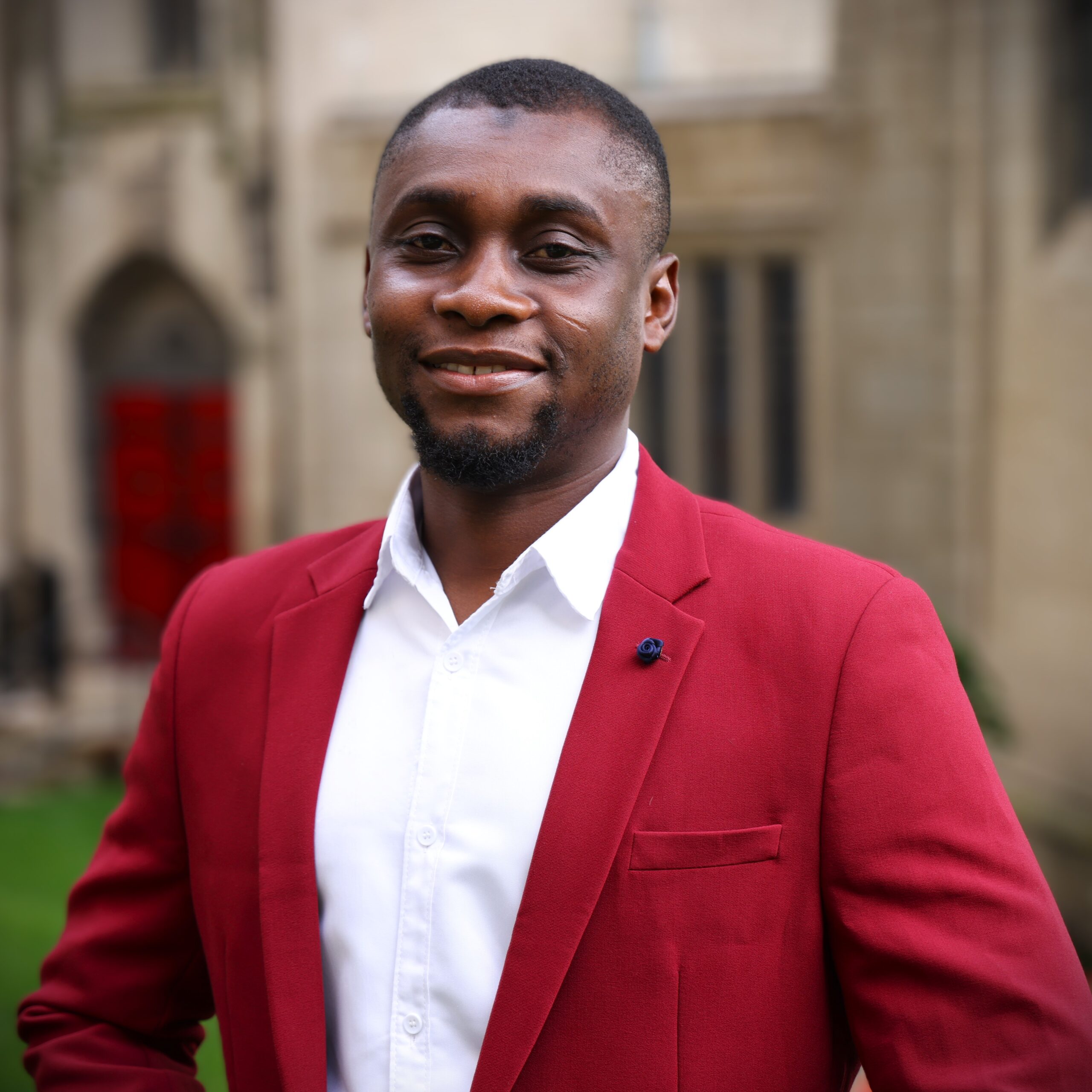
Postdoctoral Fellow
Dr. Abdul Razak Monto holds a BSc in Nutrition from the University for Development Studies in Tamale, Ghana, as well as an MEng in Biochemical Engineering and a PhD in Food and Biological Engineering from Jiangsu University, China. With a strong background in analytical chemistry, gene expression, microbiology, and food chemistry, Dr. Monto brings a wealth of expertise to his research. In Dr. Karikari’s lab, his work focuses on uncovering the mechanisms that regulate the progression of tau aggregate pathology in Alzheimer’s disease, from early-stage assemblies to mature tangles. His goal is to advance the development of biomarkers and therapeutics for Alzheimer’s disease. Outside of his research, Dr. Monto enjoys sightseeing, watching soccer, and reading about global politics.

Postdoctoral Fellow
Ruyu Shi earned her PhD in Human Genetics, specializing in large-scale genetic and multi-omics studies on Alzheimer’s disease, from the University of Pittsburgh. Her research focuses on understanding the genetic architecture underlying cognitive decline and blood- and imaging-based biomarkers in AD and broader aging populations by leverage multi-ancestry GWAS, rare variant analysis, and longitudinal data modeling to identify genetic and molecular drivers of disease pathology. With her postdoctoral work, she aims to shift toward the clinical translation of these findings, and to bridge discovery research with early diagnostic applications. She brings expertise in statistical genetics, advanced biostatistics, and bioinformatics, with a strong track record in integrating proteomic, genomic, and neuroimaging datasets. Outside of work, she enjoys painting, design, photography and various sports.
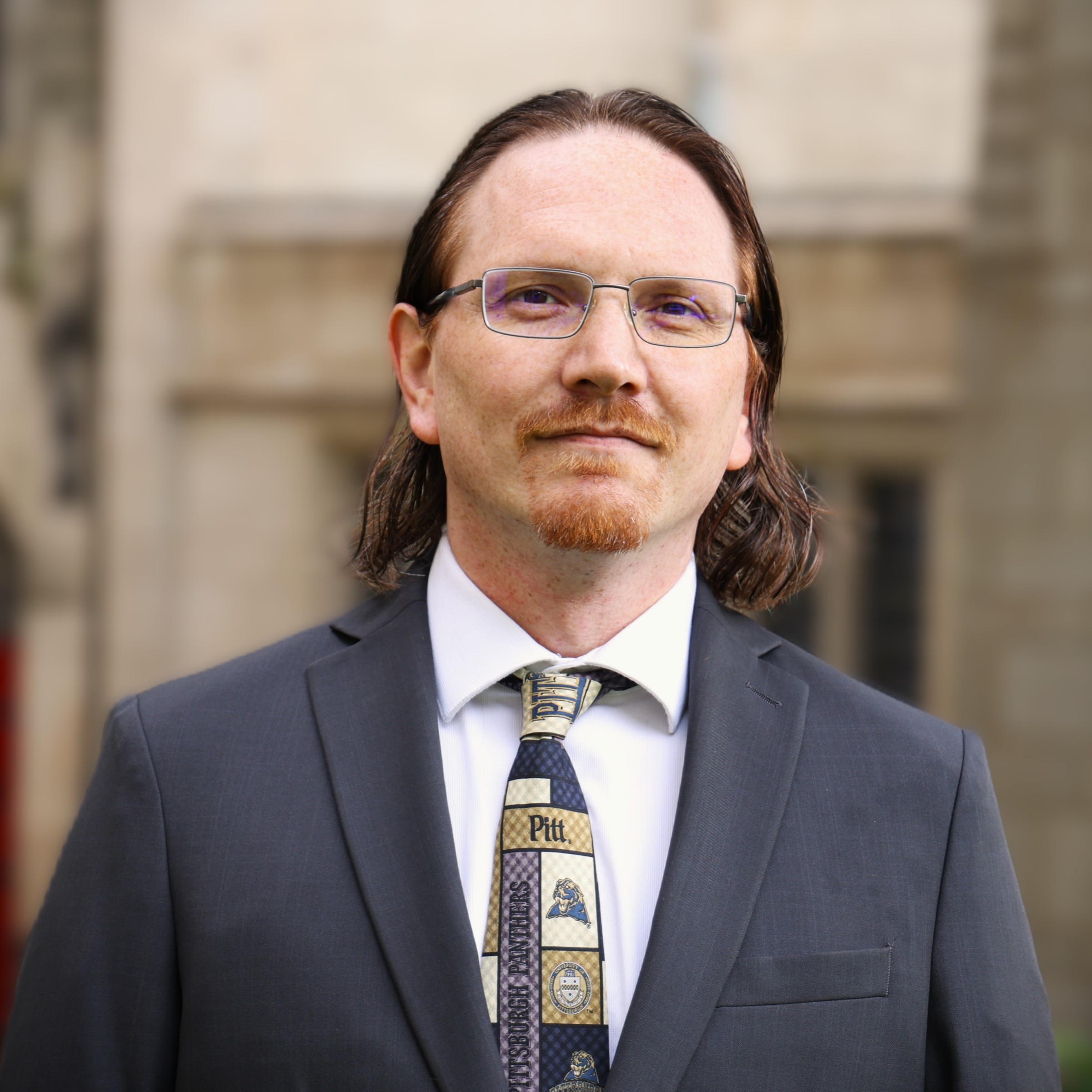
Senior Research Coordinator
James Emanuel is a Senior Research Coordinator with over 20 years of experience in coordinating research studies in late-life mental health and cognition. He most recently completed the LATTICE study, a double-blind, placebo-controlled, randomized controlled trial that aimed to learn if lithium can prevent individuals with mild cognitive impairment from developing dementia or slowing their cognitive decline. Throughout his career, he has maintained a broad interest in the relationship between psychosis and cognitive function, contributing to findings in various disorders, such as psychotic symptoms in Alzheimer disease, psychotic depression, and bipolar disorder. He can be found outside of the lab engaged in one of many hobbies, including playing guitar and competitive pinball.
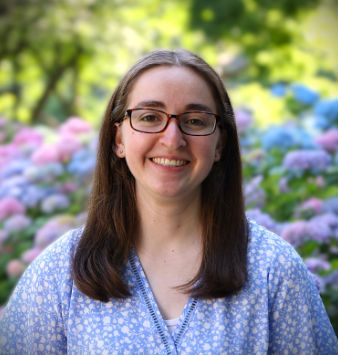
Senior Research Associate
Marissa Farinas graduated from The Ohio State University with a BS in Neuroscience, where she tested novel small molecule inhibitors in mouse models of multiple sclerosis. She then received an MS in Biomedical Sciences from the Icahn School of Medicine at Mount Sinai. There, her research focused on uncovering molecular markers of vulnerability and resilience of the hippocampal subfields in Alzheimer’s disease using single-nuclei RNA sequencing. After working for a year in a neuropathology lab studying essential tremor, she is returning to the Alzheimer’s field and is excited to delve into the protein biochemistry of AD biomarkers. In her spare time, Marissa enjoys running long distances, watching hockey, and reading.

Research Specialist
Michel Nafash holds a Bachelor of Science in Biobehavioral Health from the Pennsylvania State University and is currently pursuing a Master of Science in Translational Pharmacology at The Ohio State University, with a focus on clinical pharmacology and clinical trial design. In his role, Michel runs clinical cohort studies using commercial immunoassays using various platforms, applying single-molecule array (Simoa) and NULISA methodology to quantify Alzheimer’s disease biomarkers in human biofluids. In addition, he works closely with senior scientists to develop and optimize in-house biomarker detection assays. Michel also leads a clinical and analytical validation study for an immunoassay, managing experimental design, data analysis, and reporting. His work follows FDA bioanalytical method validation guidelines and incorporates data analysis tools such as GraphPad Prism, Excel, and R. Beyond benchwork, Michel trains new staff on laboratory instrumentation and contributes to writing standard operating procedures to support lab operations and compliance. Outside of the laboratory, Michel enjoys gardening, watching soccer, and going for nature walks.
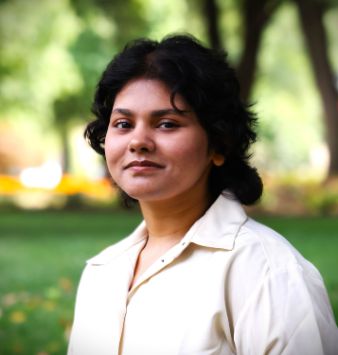
Research Specialist
Lamia Choity earned a B.S. in Biology with minors in Neuroscience and Chemistry from the University of Pittsburgh. At the Aging Institute of UPMC, she tested the efficacy of cancer drugs on various RB-1 deficient cancer cell lines and worked with C. elegans to identify methyltransferases that confer resistance to oxidative stress, a factor contributing to aging. Subsequently, she joined the geriatric unit at UPMC Western Psychiatric Hospital as a Student Behavioral Associate (SBA), where she assisted elderly patients with mental health disorders in their daily activities. Her interest in dementia deepened during this role, leading her to join the Karikari Lab. There, she is focused on identifying blood biomarkers specific to Alzheimer’s Disease. In her free time, Lamia enjoys drawing and spending time with cats.

Research Specialist
Nya graduated from Georgia State University with a Bachelor of Interdisciplinary Studies in Biomedical Science and Business. During her final year, she completed a capstone project optimizing protein expression of an ancestral therapeutic protein. In the Karikari lab, she works as a biobanker processing human blood samples for multiple clinical research studies while also contributing to ongoing research projects. Her research interests center on how cultural, environmental, and social risk factors intersect with biological mechanisms to influence disease risk and progression. Outside of the lab, Nya enjoys reading historical fiction, spending time with her dog, exploring new cuisines around the city, and volunteering in her community.
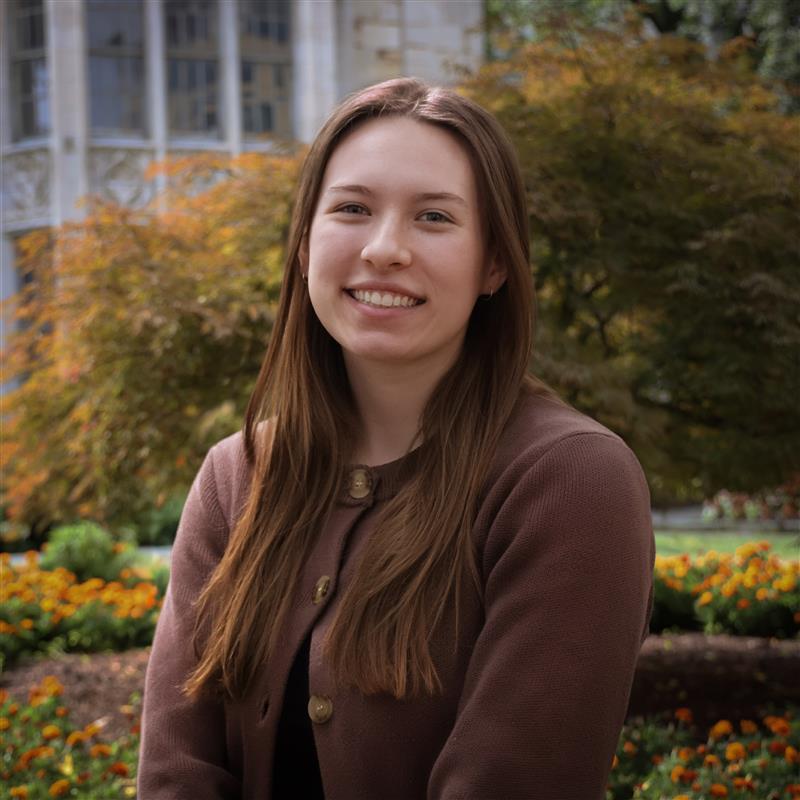
Research Specialist
Ella Klaus graduated from the University of Wisconsin – Madison with a Bachelor of Science in Neurobiology and Biochemistry. During her undergraduate studies, she worked at the Wisconsin National Primate Research Center (WNPRC) where she investigated cellular senescence and protein expression in Alzheimer’s Disease model mice. In the Karikari Lab, Ella contributes to clinical research studies by processing and assaying human biofluids. Ella’s academic interests center around the biological basis of disease – especially neurodegenerative disorders – and on understanding their underlying mechanisms and pathology. In her free time, Ella enjoys listening to music, reading, and baking.

Database Manager
Brandon De Lorme comes to the lab with a background in clinical research, data quality, and database programming. Throughout his career, he has worked in laboratory specimen processing, laboratory billing and data reconciliation, clinical research in oncology, vaccination data exchange, data quality, database auditing, and database design/programming. His career interests include enhancing established workflows through automation, building intuitive graphical user interfaces, and finding programmatic solutions for recurring issues. Outside of work hours, Brandon enjoys cultivating seeds from local trees, hiking, Dungeons & Dragons, and playing jazz triangle.

Statistician
Theresa possesses a Master of Science in Statistics and a Bachelor of Science in Biology, with a concentration in Neuroscience and a minor in Mathematics, all earned from West Virginia University. She brings extensive expertise in study design and data analysis across diverse domains, spanning experimental toxicology, epidemiology, and risk assessment. Her research endeavors focus on the application of advanced machine learning methodologies to large cohort datasets, aiming to elucidate complex patterns and associations among biomarkers. Outside of work hours, she enjoys spending time with family, traveling, and trying new coffee shops.
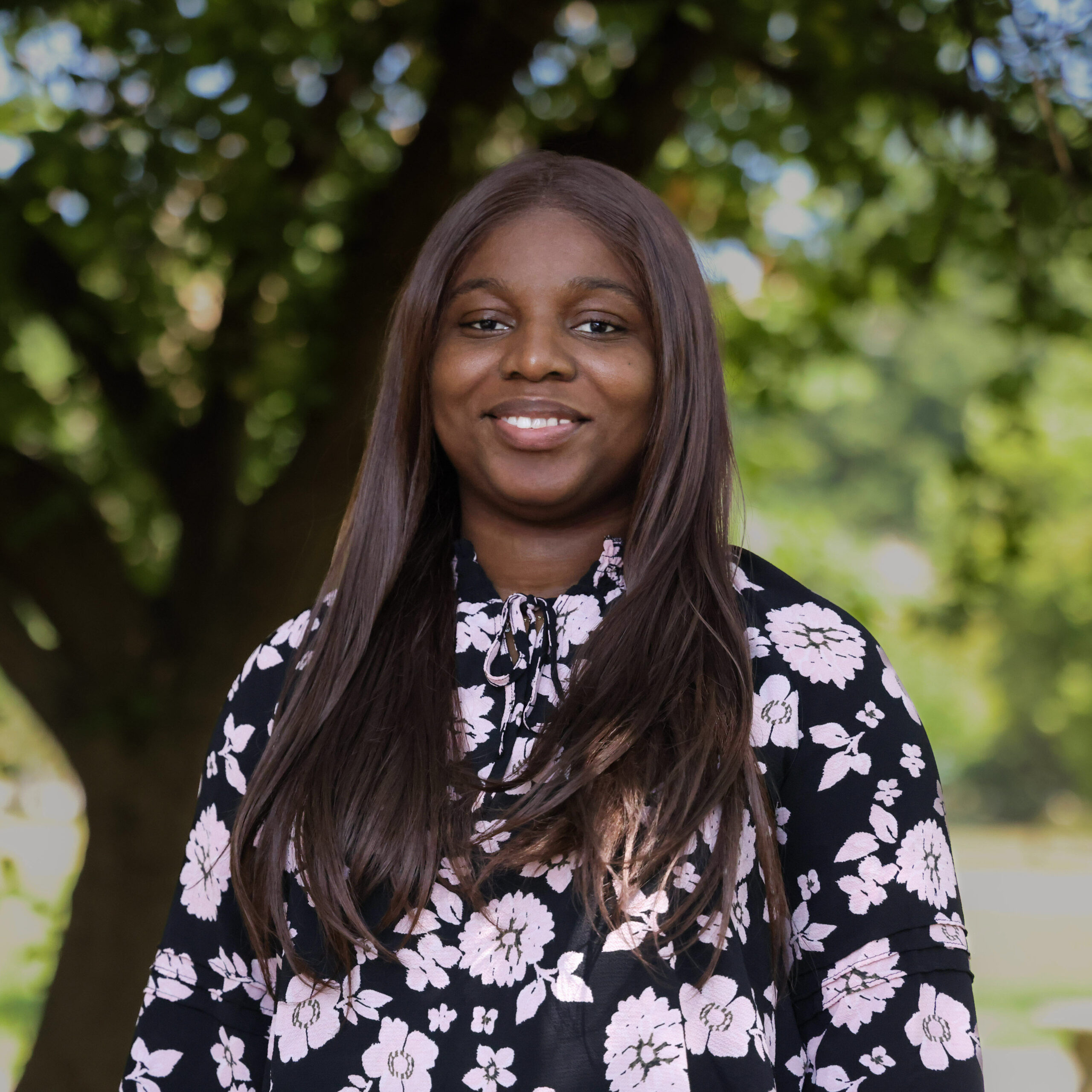
Research Project Assistant in Bioinformatics
Happiness Eric Aigbogun holds a BSc in Computer Science from Landmark University, Nigeria. She specializes in computational biology, with expertise in single-cell RNA sequencing (scRNA-seq) and machine learning algorithms. Her research includes predictive modeling for colorectal cancer classification using principal component analysis (PCA) and applying scRNA-seq to analyze olfactory sensory datasets. At the Karikari Lab, Happiness conducts bioinformatic and statistical analyses on biomarker measurements in Alzheimer’s Disease (AD), contributing to manuscript preparation. Passionate about leveraging computational tools to solve complex biological questions, she is particularly interested in scRNA-seq and biomarker discovery. Outside of research, she enjoys painting, exploring global cuisines through cooking, and watching documentaries.
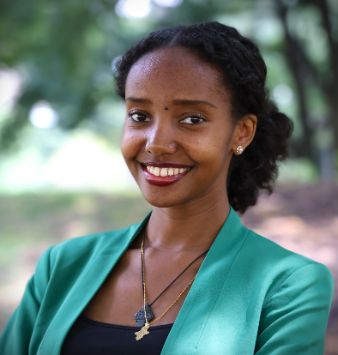
Graduate Student
Dr. Menayit Tamrat Dresse is currently pursuing a Ph.D. in Epidemiology at the University of Pittsburgh’s School of Public Health. Dr. Dresse earned her medical degree from Addis Ababa University in Ethiopia and her Master’s in Public Health and Health Economics from Umeå University in Sweden. She brings experience in clinical practice, research, and leadership to her work. Her current research focuses on identifying biofluid biomarkers for Alzheimer’s disease and related dementias, as well as exploring their performance across different population-based cohorts. She is also working on developing a roadmap for the application of blood-based Alzheimer’s biomarkers in real-world patient care and clinical practice. In her free time, Dr. Dresse enjoys swimming, traveling, reading, and exploring different cuisines.
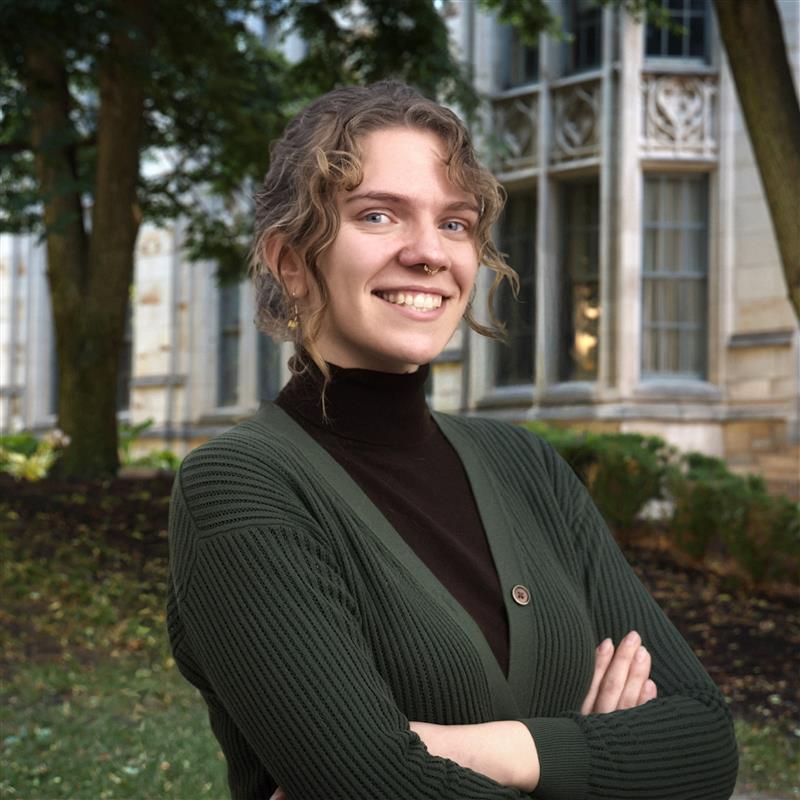
Graduate Student
Alexandra Jean (AJ) Gilsrud holds a BS in Behavioral Neuroscience and a BA in German Language and Culture from Western Washington University. AJ spent three years as a post bacc studying mitochondrial dynamics in familial Parkinson’s Disease in a neurogenetics lab at the National Institute of Neurological Disorders and Stroke (NINDS). In 2024, AJ began her graduate studies at the Center for Neuroscience University Pittsburgh (CNUP). Currently, she focuses on developing Mass Specrometry assays to expand diagnostic tools for Alzheimer’s Disease and other Neurodegenerative Diseases. Outside of the lab, AJ spends time improving her drawing, painting, and pyrography skills. She also hikes and dotes on her two adorable cats.
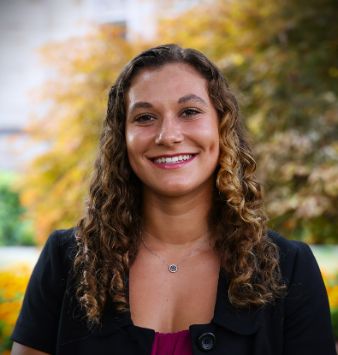
Student Worker, 2025
Shayna Brodman is a third-year undergraduate student-athlete at Davidson College. She is pursuing a degree in biology with a minor in neuroscience on the pre-health track, while also competing in Division I lacrosse. In the Karikari Laboratory, Shayna uses Quanterix’s Single Molecule Array (Simoa) technology to investigate plasma protein biomarkers of Alzheimer’s Disease (AD), aiming to find a more effective and efficient way to diagnose and predict AD pathology. After graduating, Shayna plans to pursue an MD-PhD in neurology with a specialization in neurodegenerative diseases. Outside the laboratory, she enjoys exercising, hiking, kayaking, and exploring local coffee shops.
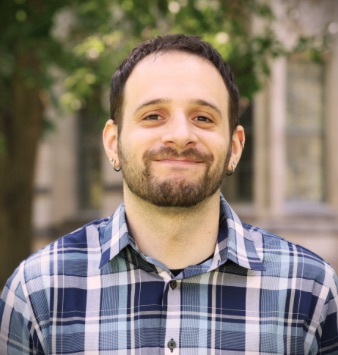
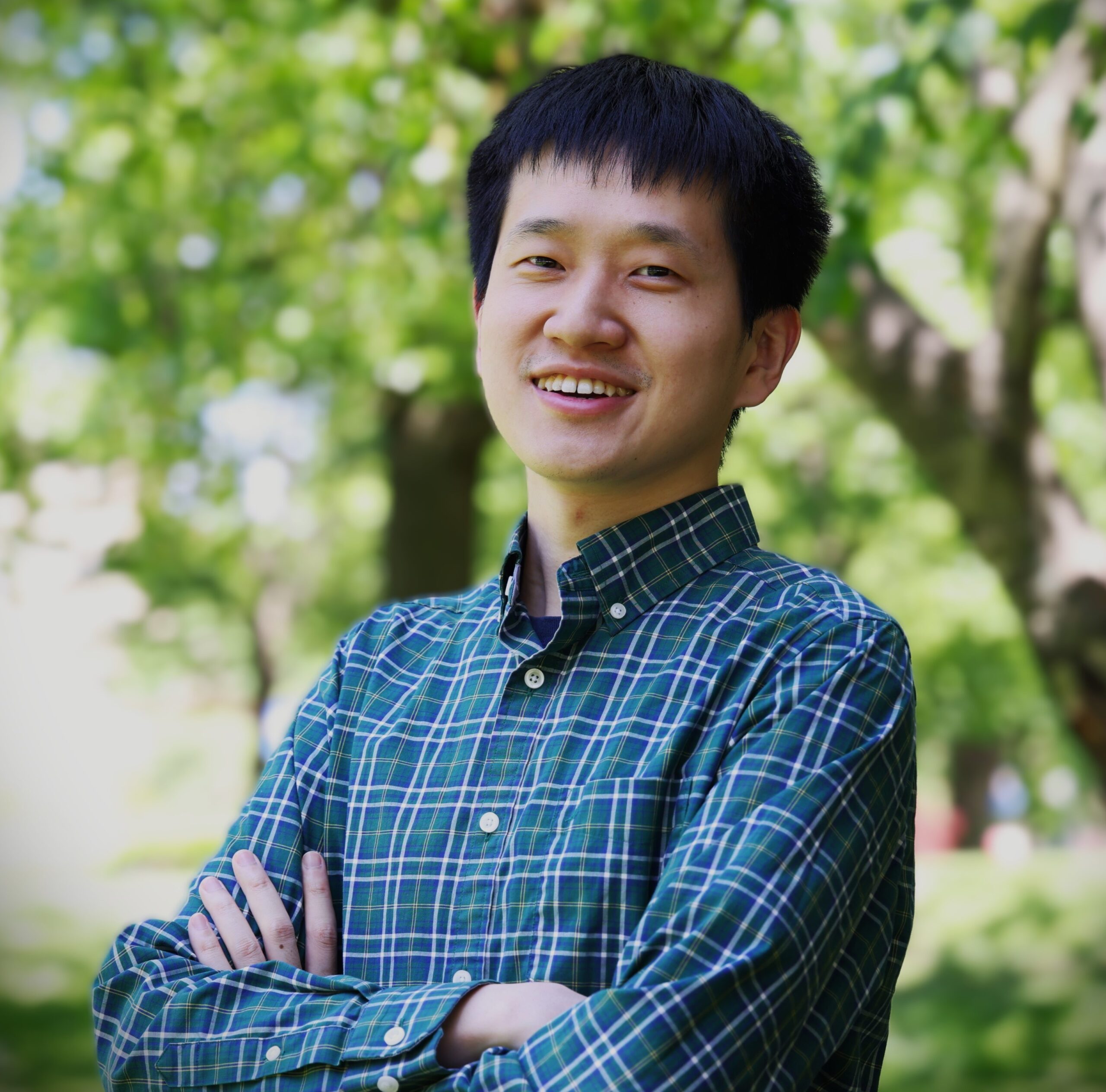
Graduate Student, 2023 – 2025
Yijun Chen pursued his Ph.D. in Analytical Chemistry. His research primarily involved developing analytical methods using LC/MS and Simoa assays to detect Alzheimer’s Disease (AD) biomarkers in human plasma. He worked on developing a new quantification method for plasma Aβ peptides utilizing MALDI-ToF technology. Additionally, Yijun evaluated the pre-clinical performance of various plasma AD biomarkers. His work also extended to the identification of AD-related proteins through proteomics techniques. These efforts aimed to enhance the understanding and detection of AD, potentially leading to earlier diagnosis and improved therapeutic strategies.

Statistician, 2024 – 2025
Akshay was a part-time statistician in the Biofluid Biomarker Laboratory and a fifth-year Ph.D. student in the Statistics & Data Science program at Carnegie Mellon University. He earned his undergraduate degree in Mathematics and Economics from The Ohio State University. His Ph.D. thesis, advised by Professor Matey Neykov, focused on minimax rates for convex constrained mean estimation. He had several years of experience working with healthcare data, including a fellowship with Novartis involving joint modelling and multistate models for immunotherapy clinical data, as well as optimizing health insurance plans during a data science internship with Highmark Health. He was excited to apply his data science skills in industry following his graduation in Spring of 2025, with interests in healthcare, finance, and tech.

Biostatistics Student, 2024 – 2025
Nick Heaton was working on his Master’s in Biostatistics at the University of Pittsburgh. During his education, he focused on classification models of Alzheimer’s Disease. These models examined different blood biomarkers and their predictive capabilities within the Alzheimer’s Amyloid-Tau-Neurodegeneration framework. Beyond that, Nick had an interest in investigating methods to address sample size constraints in prospective cohort studies specific to Alzheimer’s Disease and related comorbidities. In his free time, Nick enjoyed traveling and exploring coffee shops around the city.

Research Principal, 2023 – 2025
Tara Lafferty had completed her Master’s in Psychological Science at Shippensburg University. Throughout her education, she focused on biochemical models of Chronic Traumatic Encephalopathy (CTE). More specifically, she explored the relationship between phosphorylated tau and behavioral manifestations of CTE. While working with the Karikari lab, her focus shifted toward Alzheimer’s and Dementia blood biomarker research. Using the Quanterix Simoa HD-X (a fully automated Simoa bead-based immunoassay platform), Tara tested clinical samples for the leading blood-based biomarkers for Alzheimer’s and Dementia.

Research Associate, 2024
Ally graduated from Pennsylvania State University with a Bachelor of Science degree, majoring in biobehavioral health. In the lab, Ally retrieved and processed blood samples to be tested for the presence of biomarkers indicative of Alzheimer’s disease. Her research interests included finding more accessible, cost-effective diagnostic methods (i.e., blood biomarkers) to detect Alzheimer’s disease. Her career goals were to attend graduate school to earn her Doctorate in Dental Medicine (DMD). In her spare time, Ally enjoyed going on hikes with friends and family, photography, and reading.
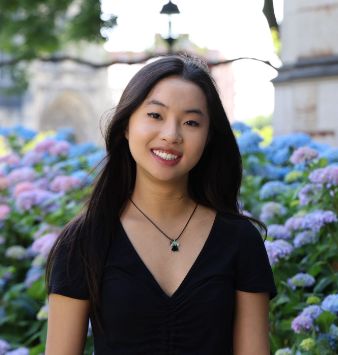
Student Worker, 2024
While at the Karikari Lab, Kathryn Mi was a second-year undergraduate student at Johns Hopkins University. She was pursuing a degree in Molecular and Cellular Biology on the pre-health track, and she looked forward to exploring various topics in medicine and public health through her studies. At the Biofluid Biomarker Laboratory, she assisted in blood banking as well as method development and optimization of biomarker assays, with the goal of advancing clinical diagnosis of Alzheimer’s disease and related neurodegenerative disorders. In her free time, she enjoys reading, writing poetry, and listening to classical music.
